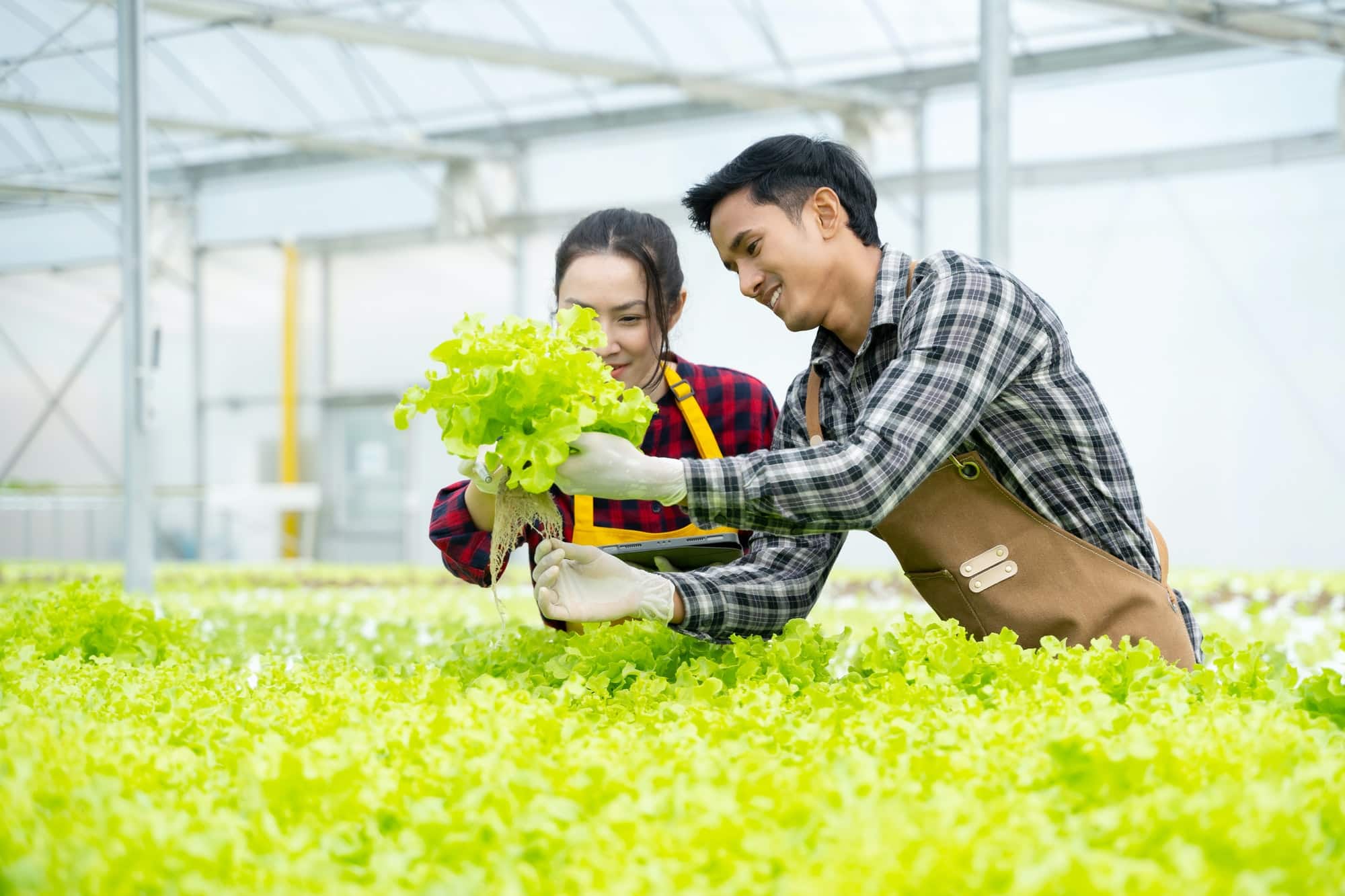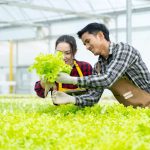Urban farming has transformed from a fringe, almost hippie movement, to a core component of global food production. With cities expanding and arable land shrinking, there’s an urgent need to explore more effective ways of farming.
As we peek into the future of urban farming, one technology stands out vividly – Hydroponics. Hydroponics, a method of growing plants without soil, has the potential to revolutionize our food supply and shake up the urban farming landscape.
Lire également : How Is Machine Learning Optimizing Traffic Flows?
In this article, we’ll delve into the potential of hydroponics in urban farming, the advantages it brings along, and its unique features that make it a viable solution for modern-day farming.
Understanding Hydroponics
Before we delve into the potential of hydroponics in urban farming, let’s first understand what hydroponics is. Hydroponics is a subset of hydroculture, a method of growing plants without soil. Instead, mineral nutrient solutions in a water solvent are used, providing the necessary nutrients that plants would typically get from soil.
A découvrir également : Can Smart Glasses Improve Accessibility for the Visually Impaired?
There are different types of hydroponic systems, such as nutrient film technique (NFT), deep water culture (DWC), and aeroponics, among others. However, they all adhere to the same principle – using water as the medium for nutrient delivery to the plants’ roots.
Advantages of Hydroponics in Urban Farming
The beauty of hydroponics lies in its many advantages, particularly for urban farming. The following are some of the ways hydroponics is proving to be a game-changer in this sector:
Space Utilization
In traditional farming, a significant amount of land is needed to grow crops. However, cities are strapped for space, and with increasing urbanization, arable land is becoming scarce. Hydroponics offers a solution to this challenge. It allows for vertical farming, which means you can grow much more in a smaller space, making it ideal for urban environments.
Water and Nutrient Efficiency
Hydroponics systems use significantly less water than traditional farming methods. Since the water in the system is recirculated, it leads to considerable water savings. Additionally, nutrients can be controlled and monitored more efficiently, ensuring the plants get precisely what they need for optimal growth. This not only saves resources but also contributes to the sustainability of the farming practice.
Year-Round Production
Unlike traditional farming, hydroponics is not dependent on seasons. This means you can grow crops all year round regardless of the weather conditions. This feature makes hydroponics particularly attractive for urban farming, where reliable, year-round production is essential.
The Role of Hydroponics in the Future of Urban Farming
The increasing global population and urbanization are creating a scenario where we have more mouths to feed and less arable land. This is where hydroponics can play a crucial role.
Hydroponics, with its ability to use vertical space and its efficiency in water and resource usage, is uniquely suited to address these challenges. With the right systems and technology in place, hydroponics can significantly contribute to the future of urban farming, ensuring food security for the ever-growing urban population.
Overcoming Challenges in Hydroponics Adoption
While the potential is enormous, the adoption of hydroponics in urban farming does present some challenges. One significant obstacle is the initial setup cost, which can be quite high. Additionally, hydroponic systems require constant monitoring and management, which can be daunting for newcomers to the practice.
However, as more people become aware of the benefits of hydroponics and as technology advances, these challenges are likely to diminish. Training and education to equip farmers with the necessary skills and knowledge, coupled with supportive policies and initiatives, can help accelerate the adoption of hydroponics in urban farming.
The potential of hydroponics in urban farming is undeniable. As a technology that optimizes space, resources, and production, hydroponics is poised to be a critical part of the future of urban food production. It’s a future where every rooftop, balcony, and spare city space can be a potential food production site, contributing to a more sustainable and food-secure world.
Future Trends in Hydroponics Urban Farming
A look at the trajectory of urban farming shows us that hydroponics is becoming increasingly popular. This trend is poised to continue, driven by several factors.
Firstly, the global population is projected to reach nearly 10 billion by 2050, according to the United Nations. This, coupled with urbanization, will significantly increase the demand for food. Hydroponics, with its high yield per unit area, presents a practical solution to this looming challenge.
Technology will also play a significant role in shaping future trends. As data-driven farming practices become more common, hydroponics systems will increasingly be equipped with sensors and automation tools. These technologies will help monitor and control environmental variables such as light, temperature, and nutrient levels, leading to higher crop yields and improved efficiency.
Public policy can also influence the future of hydroponics in urban farming. As governments around the world become more cognizant of the environmental and food security benefits of urban farming, they are likely to enact policies that promote the adoption of hydroponics. This could take the form of tax incentives, grants, or zoning laws favoring urban farming.
Conclusion: The Promise of Hydroponics in Urban Farming
In conclusion, the potential of hydroponics in urban farming is tremendous. It offers solutions to some of the most pressing issues of our time: food security, water scarcity, and the need for sustainable agricultural practices.
While there are challenges to be overcome, particularly in terms of initial setup costs and the need for specialized knowledge, these are not insurmountable. As awareness grows and technology advances, these barriers are likely to be eroded.
The future of urban farming is green, high-yielding, and efficient, and hydroponics is at the heart of it. With every passing day, the vision of cityscapes dotted with lush, productive green spaces becomes less of a dream and more of a reality. The potential is there, and the time to act on it is now. By embracing hydroponics, we can create a more sustainable and food-secure world for future generations.
















